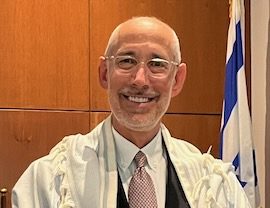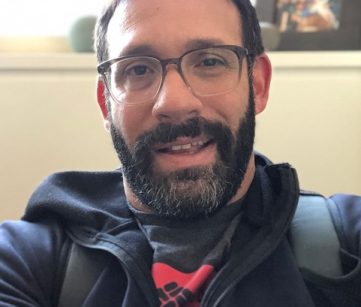Welcome to the Temple Sholom Family
A Sanctuary of Living Judaism in Greater New Milford
Upcoming Events & Holidays
Rabbi's Corner

Rabbi Cohn writes a weekly column that seeks to highlight, challenge, and address matters related to Jewish thought, the weekly Torah portion, holidays, music, and contemporary issues in the United States. Sometimes, he even speaks on all of those at once!
Get to know

With a Bachelor of Science in Landscape Architecture from Arizona State University, Brett has built a life and career rooted in design, nature, and community. For the past several years, he has worked as both designer and studio manager at Enza Events in New Milford, joining the team soon after his family moved to Sherman. He helps design, build, and install large-scale fabrications for weddings and bar/bat mitzvahs, with a primary focus on floral design.


